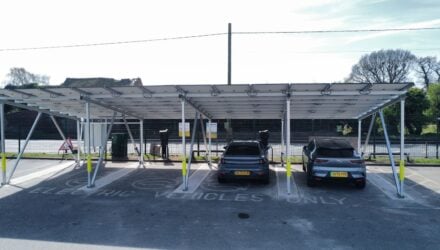
As congestion on UK roads continues to drive motorists’ frustration levels through the roof, interest in automatic cars is shifting up a gear according to automotive data experts hpi.
And with the big getaway expected this Friday and Saturday with the start of school holidays causing the usual chaos on Britain’s roads, latest insight from hpi reveals that there will be more automatics on the road than ever before. Around nine million vehicles take to the roads over the weekend ahead of a summer getaway with the RAC predicting 36.5 million “leisure” journeys in the first fortnight of the school holidays.
Since 2008, automatic cars have had an average market share of 26.7 per cent. For 2017 to date, automatics have a 38 per cent market share (435,105 new cars). Last year 927,806 new automatics took to UK roads, almost double the number of automatics in 2008 (437,633).
Last year Transport for London published figures showing that average daytime speeds on main roads in central London dropped to 7.8mph between July and September, down from 8.1mph the previous year.
It also reported that an unprecedented 8,146 roadworks were taking place on main roads in Greater London in the same period – almost 900 more than in 2015 resulting in the average speed across the city dropping to 17.4mph.
Philip Nothard, retail and consumer editor at hpi commented: “Traffic problems and just the sheer number of motorists on the road particularly during the school summer holidays mean that the situation is not getting any better for motorists who are now accustomed to almost nudging their way around our city centres and busiest roads. So it’s no surprise that automatic cars are becoming much more appealing – it’s no longer a clunky automatic gearbox and the pace of evolution has been dictated by high-end manufacturers such as Ferrari and Porsche who have been phasing out the manual option for years. Now, more mainstream manufacturers are following suit and ditching the gearstick because of reduced demand.”
Year on year the growth of automatic vehicles represents an average increase of 10.3% per year. The biggest jump occurred between 2014 and 2015, where automatics increased their market share by 18.5%.
Of the top five manufacturers by volume, BMW has the largest share of automatics, having 55.6% of its registrations being automatics, followed by Audi (39.8%) and Volkswagen (22.7%).
Continued Philip Nothard: “The roads are so busy and congested these days that its’ easy to have an automatic as it is better suited to the stop start reality of everyday, urban driving. Running costs over three years for popular models like the Ford Focus, Nissan Qashqai and BMW 5 Series are now fairly equal regardless of transmission so there’s no reason why an automatic is not a viable option. Depreciation is also better for automatics so they represent better value for money in the longer term.”


















